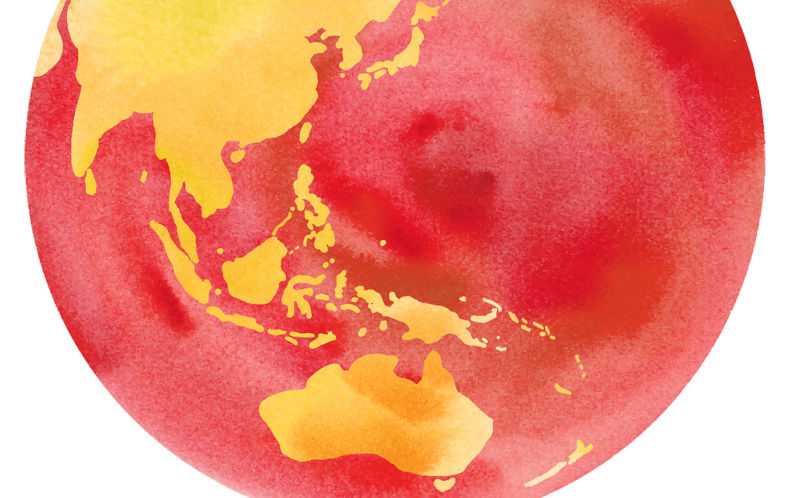The battle over development and democracy in the South Pacific
November 6, 2022
United States-Australian policy toward China demonstrates an increasing tension over what development and democracy means for people of the South Pacific. There is wide agreement that over the last forty years China has been exemplary for its rate of growth. Until relatively recently, this favourable assessment has been made by linking growth with development and ignoring that the country is ruled by an authoritarian regime.
Over the same period, the US and Australia have given little attention to either growth or development in South Pacific countries. Through a combination of domestic and international factors, living standards for most people in the region have at best stagnated, but more often than not declined, which may be thought of as a signal of non-development. Increased out-migration to New Zealand, Australia, North America and Europe in search of waged and salaried employment is one measure of this impoverishment.
Given that the western liberal democracies have facilitated non-development for so many South Pacific people, there is now a question whether authoritarian growth under Chinas rule may be more advantageous? If this seems a mere abstract, even silly question, consider the position being advocated by Professor Stefan Dercon, an Oxford University development economist, and one-time advisor in the UK Department for International Development (DFiD). In a recently published book Gambling On Development, Professor Dercon argues that while `in the long run democracy may matter, for now the `nature of the political system is by no means a necessary or sufficient condition for progress. In place of democracy being seen as a handmaiden of development, the position now held is that elites are the key agents of development. This is accompanied by an at best agnostic attitude to democratic processes democracy may become important after development occurs. Rather than challenging entrenched power, the goal of development for Professor Dercon is to co-opt national elites to become agents of development in what he calls a development bargain. Unsurprisingly like many development economists, Professor Dercon regards China (or at least Chinese-style authoritarian development) as a desirable model for growth and development.
A reader may be asking what has an argument promoted by a British academic got to do with policy toward Chinas advance in the South Pacific? Increasingly, this focus of development on elites is becoming the official post-Washington consensus position in institutions like the World Bank. More immediately, Professor Dercon is soon to appear as a guest speaker at a conference being held at the ANUs influential international development policy research institute the Development Policy Centre (DPC), where presumably he will advocate his widely promoted position. The DPC has recently become a leading advocate for what is termed labour mobility, that is the recruitment and transportation of South Pacific workers to Australia and New Zealand for seasonal work. The principal purpose of their importation is to fill shortages of agricultural labour on farms, in packing sheds and meat works.
Underlying these schemes is the assumption that poverty in South Pacific countries will continue unchecked and thus ensure a constant stream of temporary migrants desperate for money income. In the face of ongoing non-development in their home countries, the expectation is that these workers will provide remittances from their wages to meet consumption needs at home that cannot be provided for by local employment or by governments.
The extent of the US-Australian disinterest, even neglect, for actual development in the South Pacific is now being revealed by the quiet panic about Chinas imperial drive into the region. This advance raises some important policy questions. Would living standards for South Pacific people be improved through the imposition of Chinas authoritarian model of development? Or, will the US-Australian approach of democratic non-development, buttressed by out-migration under labour mobility schemes become a centre-piece of planning for the future? Both questions deserve consideration, including by anyone inclined to accept the proposition that the nature of the political system is largely irrelevant for development or wellbeing in the region.

